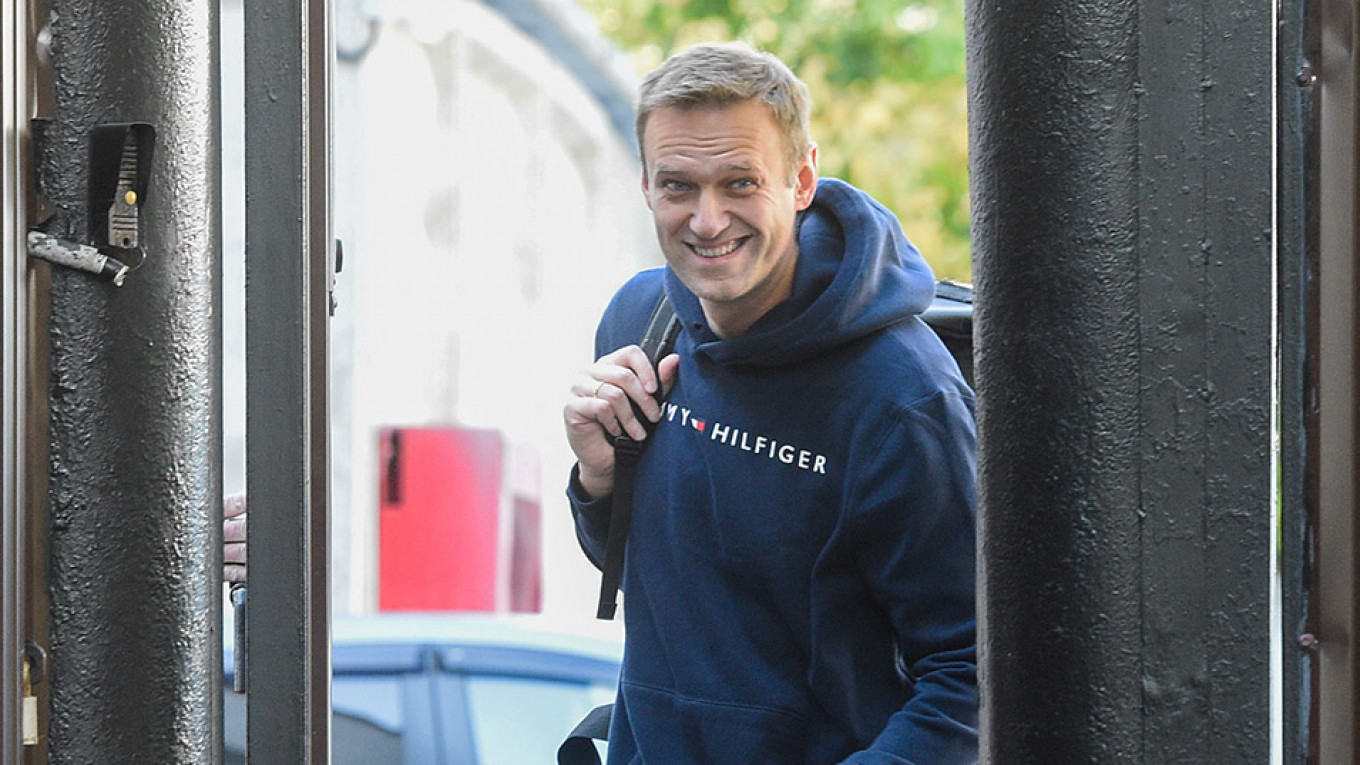
Russia is likely to ignore the European rights court’s demand for the immediate release of jailed opposition leader Alexei Navalny, legal experts said as Moscow categorically rejected the calls.
Navalny, 44, appealed to the European Court of Human Rights (ECHR) for his release on Jan. 20, days after his arrest at a Moscow airport. The Strasbourg-based court said Wednesday it had upheld that request, which was motivated by claims that Navalny’s life was in danger if he remained in custody, and told Moscow to release the Kremlin critic “with immediate effect.”
Legal experts are unanimous in that the ECHR cannot force Russia to comply with its ruling. Russia’s justice minister himself pointed to constitutional changes introduced last year that ban the execution of international treaties if they contradict Russia’s basic law.
Lawyers are divided on whether the ECHR’s demand to free Navalny is binding, citing disagreements over its 2005 ruling for persons in need of international protection.
“The ECHR itself maintained that the measures are non-binding for a long time,” Alexei Ispolinov, head of the international law department at Moscow State University, told The Moscow Times.
That position, which Ispolinov said the ECHR reversed with the 2005 ruling, “contributed to the fact that interim measures have not been executed in several instances, or most of the time to be exact.”
But Sergei Golubok, who represents Russian plaintiffs at the ECHR, maintained that Russia must abide by the demand “as a requirement of both international and Russian law.”
“Attempts to find justifications for ignoring this decision are outside the legal plane,” Golubok told the Fontanka.ru news website, echoing comments made earlier by Navalny’s senior allies when news of the ECHR ruling broke.
Others say the ECHR could respond to Russia’s disobedience by increasing the amount of damages Moscow must pay for imprisoning Navalny or even suspending its membership in the Council of Europe (CoE), a 47-member body that oversees the court and upholds the rule of law on the continent.
Pyotr Tolstoy, the deputy speaker of Russia’s lower house of parliament, said Moscow is ready to be stripped of CoE membership for its refusal to release Navalny.
Russia’s failure to comply with the court’s demands may also lead the ECHR to issue a more stringent ruling down the line and order higher damages paid to Navalny, according to human rights lawyer Vanessa Kogan.
The court could “add new violations to the case under consideration and increase the amount of monetary compensation,” Kogan — whose deportation from Russia has itself been halted under a similar ECHR interim measure late last year — told Open Media.